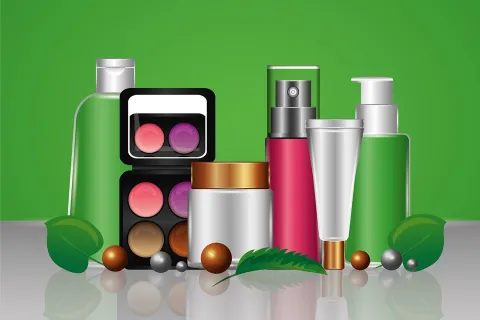
The highly anticipated cosmetic Regulatory update, the Modernization of Cosmetics Regulation Act of 2022 (MoCRA), was signed into law on December 29, 2022, ushering heightened Regulatory oversight of cosmetic products and facilities. MoCRA brings significant changes to the current Regulatory framework, marking a notable shift since the enactment of the Federal Food, Drug, and Cosmetic Act (FD&C Act) of 1938.
MoCRA Cosmetics – Timeframes
Requirements | Deadlines |
Facility Registration | 01-07-2024 |
Product Listing | 01-07-2024 |
Adverse Event Reporting | 29-12-2023 |
Safety Substantiation | 29-12-2023 |
Talc Containing Cosmetics | 29-12-2023 |
Labeling | 29-12-2024 |
Cosmetic Good Manufacturing Practices (GMP) | 29-12-2025 |
PFAS in Cosmetics | 29-12-2025 |
Table 1: MoCRA Cosmetics – Timeframes
MoCRA Cosmetics – Key Provisions
MoCRA introduces the following key provisions:
Facility Registration: All existing facilities that produce cosmetics must be registered with the USFDA no later than December 29, 2023, whereas new facilities must register within 60 days of first engaging in such activity or by February 27, 2024, whichever is later. Facility registrations must be renewed every two (02) years.
Product Listing: A “Responsible Person (RP)” (manufacturer, packer, or distributor of a cosmetic product, whose name appears on the label) must list each cosmetic product including its ingredients, with the US FDA not later than December 29, 2023. For products marketed after the enactment of MoCRA, an RP must submit the product listing within 120 days of marketing the product or within 120 days of December 29, 2023, whichever is later. Additionally, the RP must update product listing information annually.
Cosmetic Good Manufacturing Practices (GMPs): Facilities are required to adhere to Good Manufacturing Practices (GMPs) that align with national and international standards. GMPs aim to protect public health and ensure that cosmetic products are not adulterated. This regulation allows the US FDA to inspect facilities and access necessary records to verify compliance with the GMPs established by the FDA. Currently, the US FDA has two (02) years from enactment to publish the Notice of Proposed Rulemaking for Cosmetic GMP, with the final ruling due within three (03) years after enactment.
Labeling: It is now mandatory to include a domestic address, domestic phone number, or electronic contact information where an RP can receive the adverse event reports. Under MoCRA, it is also mandatory to label fragrance allergens. The US FDA must issue the list of fragrance allergens within eighteen (18) months from the enactment, with the final ruling issued 180 days after the public comment period closes. Professionally used cosmetics must bear a clear and prominent statement that the product is administered or used only by licensed professionals and conforms with the existing cosmetic labeling requirements.
Adverse Event Reporting
An RP must report any “serious adverse event” associated with the use of a cosmetic product to the US FDA within fifteen (15) business days of receipt. Additionally, for one (01) year after the initial submission, the RP must submit any new and material medical information related to the initial report within fifteen (15) business days of receipt. The RP must maintain records of adverse event reports associated with the domestic use of a cosmetic product for six (06) years. Only certain small businesses must maintain such records for a period of three (03) years.
Safety Substantiation
The RP must ensure the safety of the ingredients and the intended use of the product. It is the RP’s responsibility to maintain adequate safety substantiation for their products or have their product evaluated for safety by a qualified expert. Products lacking safety substantiation will be considered misbranded and adulterated.
Records
The US FDA now has the authority to conduct in-person audits of all kinds of records related to a product if they believe the product or its ingredients pose any serious health issues or adverse events.
Mandatory Recall Authority
If the US FDA determines that there is a reasonable probability that the cosmetic is adulterated or misbranded, or if serious adverse health consequences or death are involved, the US FDA can order the RP to cease its distribution or initiate a recall voluntarily.
Small Businesses
Any business whose average gross annual sales of cosmetic products for the previous three (03) years is less than $1 Million in the US, adjusted for inflation, and not engaged in the manufacturing or processing of the cosmetic products described below shall be considered small businesses, and they are exempted from GMP, facility registration, and product listing.
- Cosmetic products that regularly come in contact with the mucus membrane of the eye under conditions of use that are customary or usual.
- Cosmetic products that are injected.
- Cosmetic products that are intended for internal use.
- Cosmetic products that are intended to alter the appearance for more than 24 hours under conditions of use that are customary or usual, and removal by the consumer is not part of such conditions of use that are customary or usual.
Talc-containing Cosmetics
The US FDA must issue the proposed regulations to establish and require standardized testing methods for detecting and identifying asbestos in talc-containing cosmetic products before one (01) year of enactment, no later than 180 days after the date on which the public comment period on the proposed regulation closes.
PFAS in Cosmetics
The US FDA must assess and provide scientific evidence on the safety and use of Perfluoroalkyl and Polyfluoroalkyl Substances (PFAS) in cosmetic products within three (03) years of the Act’s enactment.
For more information about MoCRA and compliance best practices, reach out to our experts.









